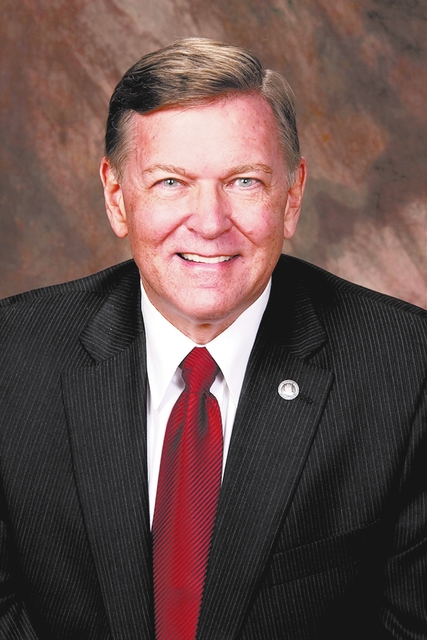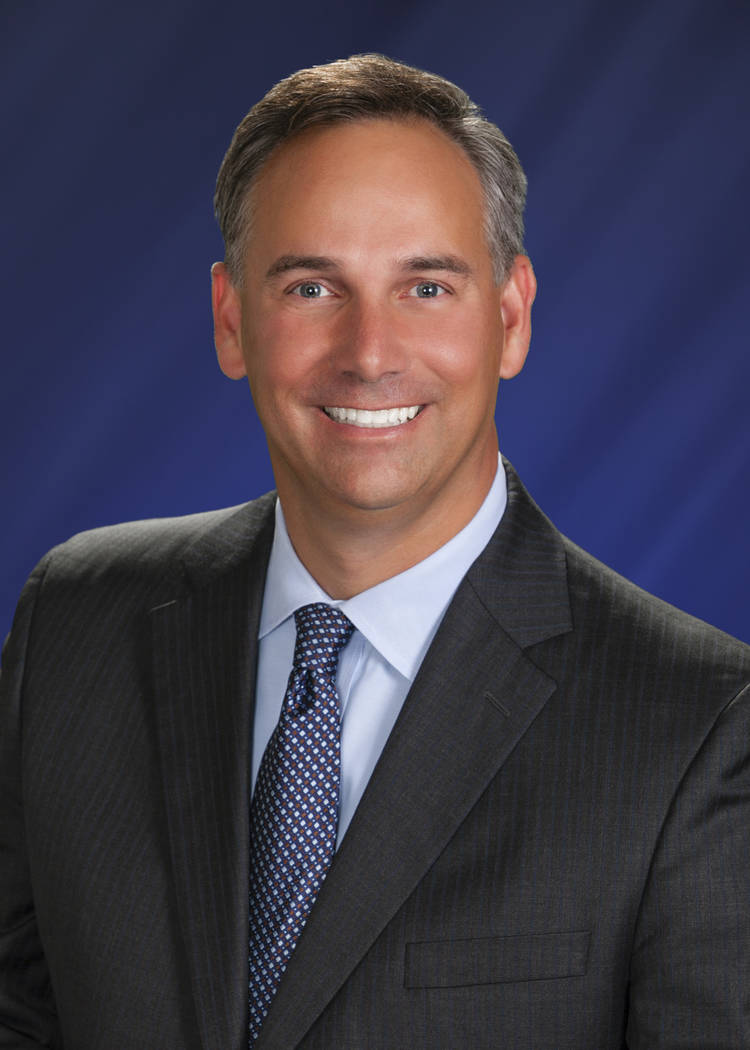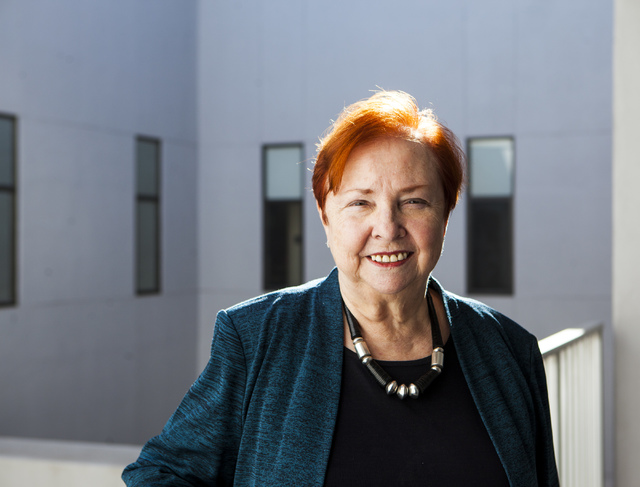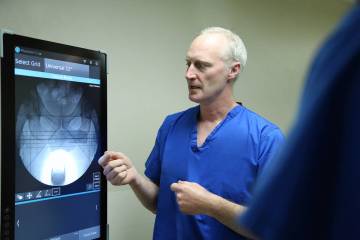



A group of medical school executives and the CEO of University Medical Center said they’re worried if Congress moves too quickly and repeals the Affordable Care Act without a replacement that keeps patients covered.
The subject of the Affordable Care Act arose March 9 at the Rio during a panel discussion on the Future of Medicine. It was part of the Green Chips Our Future in Focus conference sponsored by Caesars Entertainment and MGM Resorts International.
The concerns were raised before the Congressional Budget Office released a report March 13 that showed 18 million more people would be uninsured in 2018, 4 million of that who could cancel their insurance they bought on the private exchange if the personal mandate is eliminated. That uninsured number grows to 24 million by 2026, and that includes people who can no longer afford insurance with subsidies cut. It also would include those who are thrown off Medicaid under the ACA expansion.
“I can personally tell you it’s not UMC but every hospital in the entire state and entire country that (has) seen the benefit of having more patients covered and insured with health care insurance,” said UMC CEO Mason VanHouweling. “My emergency department volume is down significantly, and as an operator of a hospital you typically get concerned but that’s a good thing. It tells me patients are getting care in the right setting that’s less costly. They’re getting the medication they need, and they’re getting primary care that they never had before.”
VanHouweling told the audience that regardless of their political affiliation, there been a lot of concern. After the election of Donald Trump, he said he met with his executive team because he knew health care would change.
“The hospital has done a real good job of positioning itself over the last couple of years to (dealing with) whatever scenario came out of this,” VanHouweling said.
The CEO said Nevada Gov. Brian Sandoval chose to expand Medicaid, which added several hundred thousand people to the Medicaid rolls. He said he’s talked with legislators and other state leaders about concerns of hospitals. The American Medical Association, American Nurses Association, American Hospital Association, American Healthcare Association and AARP have come out against the GOP-sponsored bill that’s going through the House. It faces opposition from conservative Republicans in the House who want a full repeal with no remnants of the ACA. It faces stiff opposition in the Senate where even Republicans raised concerns about growing the number of uninsured under the proposal.
“We will continue to see what happens,” VanHouweling said. “I just hope they don’t rush things. We need to make sure they take their time and get this right.”
Prior to ACA, UMC saw 40 percent of patients who were uninsured. That fell to 12 percent after the ACA was enacted, and that consists of people who didn’t sign up and prefer to pay the penalty for the lack of coverage, VanHouweling said. It also includes the undocumented who aren’t eligible for the ACA, he said.
“If you have ever been to the hospital, you may get a sticker shock because you’re not only getting a hospital bill but a physician bill and radiology and pathologist (bills),” VanHouweling said. “You will see all of the hospitals are aligned on insuring that we have some type of coverage. This has some good benefits for patients.”
There are problems, however, about how the ACA is currently structured, VanHouweling said. Deductibles can run between $5,000 and $10,000, and at that level, some patients delay their care because of the expense.
“They’re choosing not to get care or mammograms and other things, and they’re showing up in the hospital much sicker and much more acute, which drives up the cost for all of us.”
Other panelists weighed in on the ACA in interviews following the summit but expressed similar concerns as well in their positions as leaders of the city’s three medical school programs.
Raymond Alden III, who oversees the academic research, clinical and service programs as provost of Touro University, said any bill that impacts Medicaid and the removal of federal funds from the program that serves the poor will create a challenge for the medical system.
“Insurance providers tend to base their rates on Medicaid rates and for some reason if that disappears or goes down, it could affect all of health care,” Alden said. “It would challenge the health care system even more.”
If more people are uninsured, they will end up in the emergency room and that gets expensive and the cost gets spread out throughout the health care system, Alden said.
”That’s kind of the hidden cost because if you have to resort to the emergency room as your only form of health care, then the cost to the hospitals that have those emergency rooms becomes unmanageable,” Alden said.
Alden said the ACA as currently constituted needs to be improved. There’s concerns about over-regulation and the amount people are making in co-payments as well.
“People have insurance but their deductibles are so high that by the time they seek medical attention it’s become acute,” Alden said. “It’s no longer something they get primary care for and get it resolved. Obviously, that’s a concern nationwide, especially in certain states.”
Barbara Atkinson, founding dean of the UNLV School of Medicine, said she’s concerned that people are going to lose their Medicaid coverage that has led them to get primary care from a doctor instead of going to the emergency room.
The CBO reported the Medicaid cuts are $880 billion and the $361 billion health insurance tax credits would cost 46 percent of the Affordable Care Act’s tax credits.
“We’ve made so much progress and we (would) hate to have it go back to what it was,” Atkinson said.
In its report, the CBO said premiums for those who buy their own insurance would increase by 15 percent to 20 percent in 2018. Those rates will start declining in 2020 and end up 10 percent lower than they would have been under the ACA. In return for that reduction, plans would be skimpier and deductibles and co-payments would be higher. In a decade, premiums would be up more than 20 percent for those in their early 60s before their Medicare eligibility and lower for those younger.
“They want to do the right thing and get down the overall cost but as most health care people who have looked at, they’re afraid it will cost more for everybody,” Atkinson said. “More people will choose not to be insured, and that will raise the cost for everyone else.”
Atkinson said the ACA needs improvement. Many people prefer that rather than have health care taken away, she said.
“Take what you have and make it better rather than start over,” Atkinson said. “It’s made such huge progress.”
Mark Penn, founding dean of Roseman University College of Medicine, said he’s waiting to learn more about the proposed health care changes before staking out a position. Whatever is done, aspects of the ACA that have been health care should remain. The biggest concern is cost, he said.
“We have to figure out how to pay for stuff,” Penn said. “We have to make sure the right coverage is there for everyone. The struggle now is how to keep the elements that are important like access and figure out what can be changed to make it affordable. That is the key to me.”
Supporters of the American Health Care Act cited the CBO as saying it would cut taxes by $592 billion over a decade. It says it would reduce the federal deficit by $137 million by 2025.






